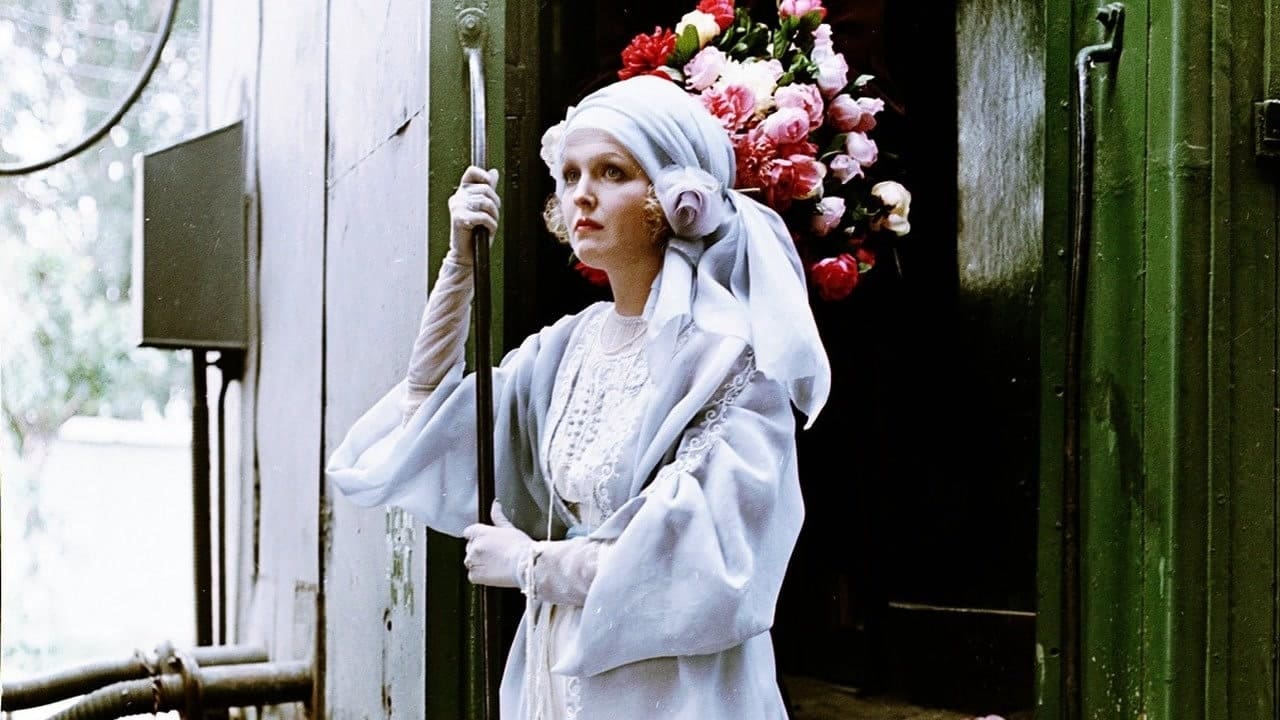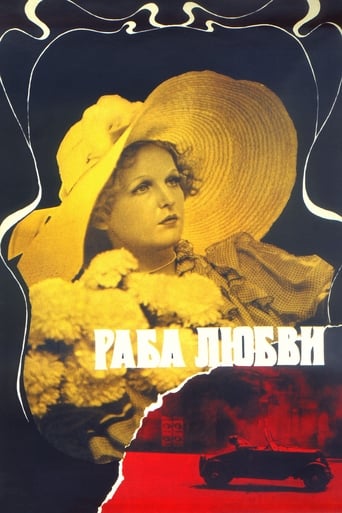

It really made me laugh, but for some moments I was tearing up because I could relate so much.
... View MoreA terrific literary drama and character piece that shows how the process of creating art can be seen differently by those doing it and those looking at it from the outside.
... View MoreThe film's masterful storytelling did its job. The message was clear. No need to overdo.
... View MoreStrong acting helps the film overcome an uncertain premise and create characters that hold our attention absolutely.
... View MoreDespite some nice photography and a mildly amusing if cartoonish nod to pre-soviet melodramatic Russian cinema, the good/bad PC politics sink this as soon as the message kicks in. Those wonderful (and so handsome!) Bolsheviks, always out to make the world a better place for the sick and the children. Neat that they courageously go forth to document White atrocities. Too bad they didn't have enough film stock to document what the Bolchies did, eh? as in the Ukraine in 33-34.
... View MoreSoviet films are clearly unique in their attempt to transfer the Leninist morality and ethics. The Leninist party did not like to impose its will by means of force, and tried to persuade their people that Leninism is for their own good and in their own interest. The voices in your head tell you to be a good Leninist. This moral offensive is what makes Soviet (and in general Leninist) films fascinating food for thought. Unfortunately I found it difficult to gain insight into the realm of Soviet cinema (I didn't know IMDb yet! How dumb can you be?). Many of them concern the horror of the Second World War, which is not really my thing. So when I saw "Slave of love" in the shop, buying it was somewhat of a gamble. It appears to be a story about the experiences of a film crew during the Russian civil war. The film crew has fled to a part of Russia, that is still loyal to the Tsar. They think with their legs. There they try to maintain their life style of the high society. They spear olives and stab friends. But they can not escape from the advancing Red Army and its agents and saboteurs, the heroes in the film (what a guy in a boat does). And the remnants of the Tsarist regime degenerate into a band of cruel terrorists. It is dynamite (take a flea out to dinner). Surprisingly director Mikhalkov tries to translate the story into a comedy. The film crew indulges in a melancholic and desperate type of humor. The events drag along, scenes seem to last forever. From my experience (well, yes, mistakes) this is typical for Soviet films: either the audience wants this slowness, or the makers just don't care. A bore is a man who, when asked how he is, tells you. "Slave of love" is value for money, but nothing more. However, some of the Soviet films that I have seen manage to escape from this melancholic mood. In the category of comedies I let off esteem with regard to "Garage" - which is recommendable. In the category of romance "Moscow doesn't believe in tears" is highly commendable. Both films have the additional advantage, that they portray the fully-developed Leninist society, long after the horrors of WWI and II. Hopefully my comments have helped you on the way - and don't forget to check off "useful: yes".
... View Moreit is one of Mikhalkov great titles. beautiful, melancholic, seductive. picture from old photo-album. part of a Rusian manner to discover the challenges of history. a film team. the Revolution. and a love story. extraordinary music. and political correct message. in fact, isles of delicate poetry. at first sigh, it is a picture by Seurat. because , not only the atmosphere but the crumbs of reality behind gestures/words of characters transforms the film in a collection of dots of pure color. indeed, it is director spirit, exercise to save traces of lost Russia but, in same time, homage to first steps of cinema.and the performance of Elena Solovey remains touching soul of this remarkable movie . because, more than a film, it is question, basic question in gloomy times - who is the duty of artist in the clash of worlds ? the answer is out of film.
... View More"Raba lyubvi" - called "Slave of Love" in English - portrays silent screen star Olga Voznesenskaya (Yelena Solovey) getting caught up in the 1917 revolution. She's trying to reconnect with a former lover, but the surrounding events complicate everything. What the movie's title shows is that Olga is not only a slave of love, but also of world events, of her career, and of her fans (I guess that even under communism - or whatever it was - people turn into celebrity fetishists!). As often happens in Soviet-era movies, there's a lot of exaggerated facial expressions. Director Nikita Mikhalkov appears as a waiter.
... View More